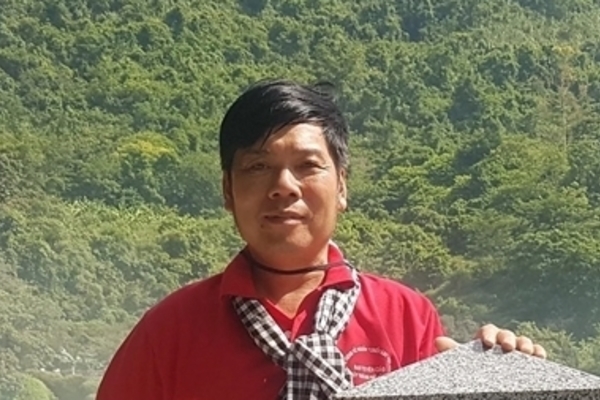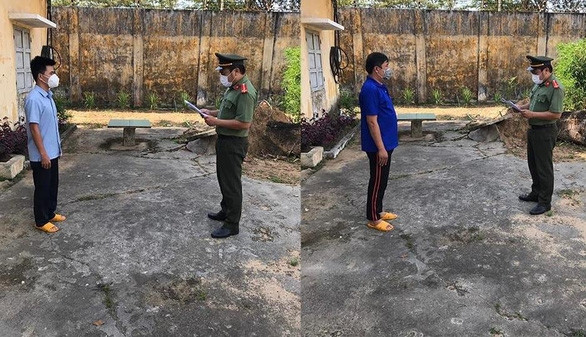Air Hero’s Slip
AmericaChristopher Magee, the Marine’s heroic pilot, was awarded many medals during World War II, but later served time in prison for robbing a bank.
Christopher Magee was born in 1917 in the city of Ohama, Nebraska, into a prestigious family. He was named after his uncle, Christopher Lyman Magee, a powerful Pennsylvania political magnate. Christopher’s cousin is also a famous pilot of the Royal Canadian Air Force (RCAF).
When World War II broke out in 1939, Christopher wanted to join as soon as possible. Following in the footsteps of his cousin, Christopher went to Canada in mid-1941 to fight in the RCAF. His training lasted until 1942, when the attack on Pearl Harbor had just broken out and the US was also entering the war.
Before long, the US military was scouring the RCAF camps looking for American volunteers to return home. Christopher volunteered to return and signed up to be a Marine pilot.
For the next four months, he continued his flight training and eventually received his Navy pilot’s badge, which featured golden wings. Christopher officially joined the Marines.
In June 1943, he boarded the USS . Rochambeaua French frigate converted to a troop carrier, bound for the South Pacific.
In the summer of 1943, he got acquainted with the F4U Corsair, when it was the “hottest” fighter and bomber in the world’s military. It is only 10 m long, has a wingspan of 12 m, but is equipped with machine guns, cannons, missiles, can carry up to 2 tons of bombs and reaches a maximum speed of 717 km / h.

U.S. Marines with an F4U Corsair fighter jet aboard the aircraft carrier, March 20, 1943. Photo: Pinterest
During this period, Christopher was famous among fighter pilots with the image of a wild man, with a beard, wearing a bandana, throwing a hundred-shot grenade and fighting all day without stopping. He only forced a break when his iron birds were running low on fuel.
Christopher’s most notable battle was on September 18, 1944, when he was assigned to cover naval ships as 30 Japanese fighter planes were rushing towards. He engaged in combat, shooting down one Japanese plane and chasing several others, driving them into the range of his comrades.
While shooting down the second plane, his plane was hit by bullets and forced to land. In a few months of war, Christopher shot down 9 Japanese planes and attacked countless barges carrying enemy ammunition and food with his comrades. For this achievement, he was commended by the President and the Minister of Defense awarded the prestigious Golden Cross Medal, awarded to the heroic Navy soldiers in the war.
After 1945, Christopher and his teammates returned to the welcome embrace of their loved ones and the recognition of the Fatherland. Their reception was held in the luxury hotel, Westin St. Francis, in the city of San Francisco and was magazine Life news.

Christopher Magee (right) and his teammates from the Black Sheep squadron on a mission in 1944. Photo: Black Sheep Squadron VMF214
Christopher is married and returned to Chicago, where he began to engage in smuggling activities, the black market. He then turned to work as a henchman and shipped illegal goods to American businessmen who were secretly involved in Latin American politics.
When the Arab-Israeli War broke out, he volunteered to join the Israeli Air Force in Chicago in May 1948 and was sent to the Czech Republic to practice flying specialized fighter aircraft. By the end of the month, he was ready to fly to the skies over Israel, but the armistice that was established in July of the same year disappointed him back home.
Even more disappointing, when he returned, he discovered his wife had divorced and left with their two children. In 1949, he was assigned to establish an early warning network to detect enemy ballistic missiles near Thule Air Force Base in Greenland, Arctic.
But when this job ended, in the early 1950s, Christopher drifted between odd jobs again. Finally, the horse got used to the old way, he smuggled on the black market and worked as an illegal henchman for the businessmen who had hired him before.
On June 13, 1955, he committed the first bank robbery at the Cicero Credit Union, Illinois. Playing the role of a security expert implementing a burglar alarm system, Christopher pointed a gun at the manager and took away $2,500, a rather large amount at the time. His second robbery occurred a full year and a month later, at the same bank, when he continued to point a gun at a teller.
This time Christopher made less than $500. His last bank robbery was on January 15, 1957 at the Lincolnway West branch of National Bank. But this time, he was caught by the police.
He was sentenced to 15 years in prison, serving his sentence in a maximum security prison. While in prison, he received 80 college credits in the professions, thereby becoming the editor of New eraprison magazine.
He was released in 1967 and returned to Chicago, where he lived quietly for the rest of his life. For six years, he worked as an editor and reporter for a local community newspaper in Chicago.
During this time, his veterans comrades in the past many times contacted, invited him to meet and review the war memories. He responded with an emotional letter and recalled his heroic feats in his youth, but never attended the meetings.
He died at the age of 78, during surgery for stomach cancer, on December 27, 1995, never seeing his wife and children again.
Hai Thu (According to Irish Central, Ace Pilots)
at Blogtuan.info – Source: vnexpress.net – Read the original article here



